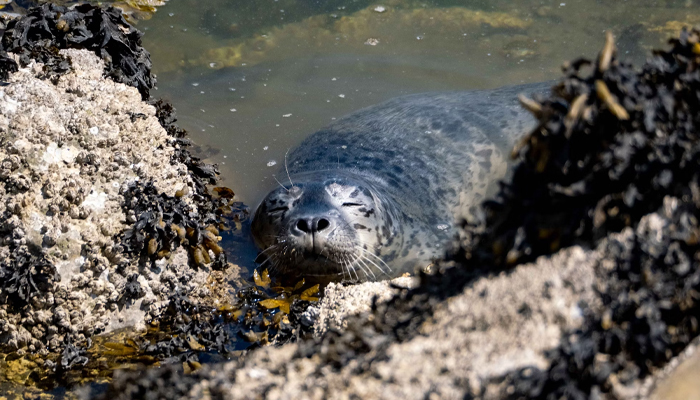More than 400 pups of seals were found just resting in an inlet at the Farallon Islands National Wildlife Refuge off the coast of San Francisco.
“I was amazed to see them all piled in there, getting tossed around like they were in a washing machine,” the refuge’s manager, Gerry McChesney, told SFGATE.
“They looked pretty content and like they were having a good ol’ time […] It was so much fun to watch,” he added.
The adorable pups were caught on video by McChesney who counted 440 of the creatures swimming about.
The clip was then shared by the United States Fish and Wildlife Service on Instagram and claimed it to be a “truly remarkable recovery”, according to the New York Post.
“Given that the entire colony can’t be seen, this was a minimal count and there were certainly many more,” McChesney continued.
The Farallon Islands and the San Miguel Island in Santa Barbara County in California are the only two fur seal rookeries, also termed as breeding grounds, in the south of Alaska.
“During the breeding season, the rookery is packed with fur seals,” McChesney said. “The waters just off the rookery often have upwards of a few hundred fur seals hanging out to keep cool.”
Seal pups are born from June to August and their stay in breeding colonies lasts until November after which they go out to sea on their own.
“And knowing that the sight represents such an amazing comeback for their population made the sight mean so much more,” McChesney said.

Seal hunting in the 19th century completely eliminated the species. McChesney estimated that over 150,000 seals were killed between the years 1810 and 1838.
Protection of the seals began in 1911 with the Northern Fur Seal Treaty, which banned the hunting of fur seals at sea and then in 1972, the Maritime Mammal Protection Act was passed by the Congress, which prohibits hunters from hunting and killing marine mammals.
Two years later after the passing of the law, the Farallon Wilderness was formed and 141 acres of the islands were closed to the public to allow the seals to return and breed.
The steps were proven useful when in 1996, the first fur seal pup was born there after more than 150 years.







